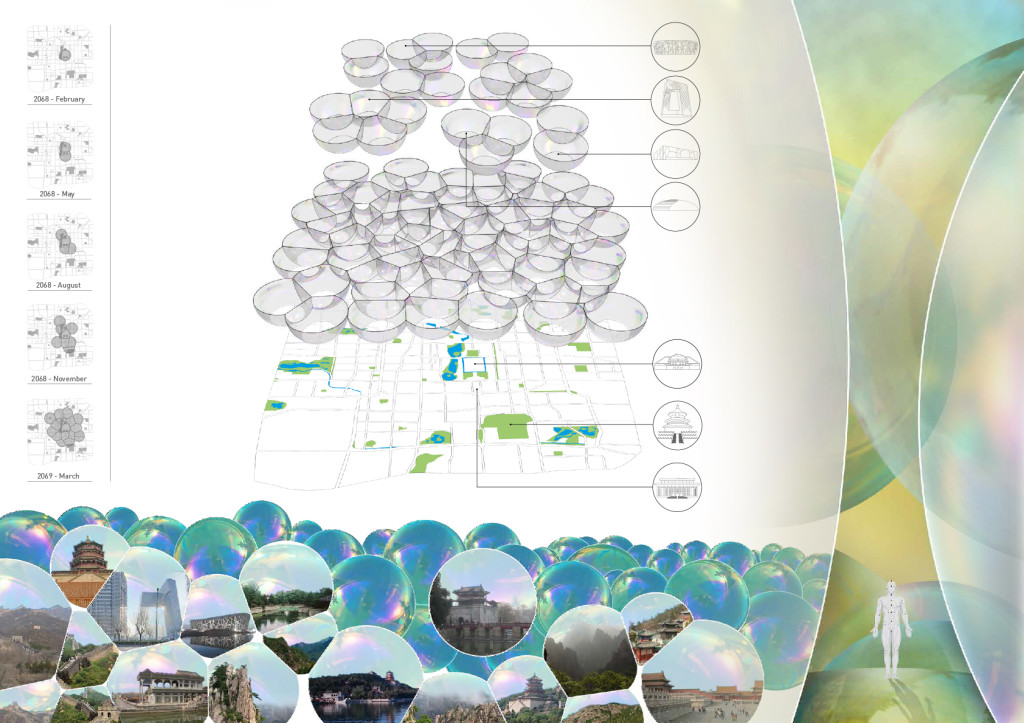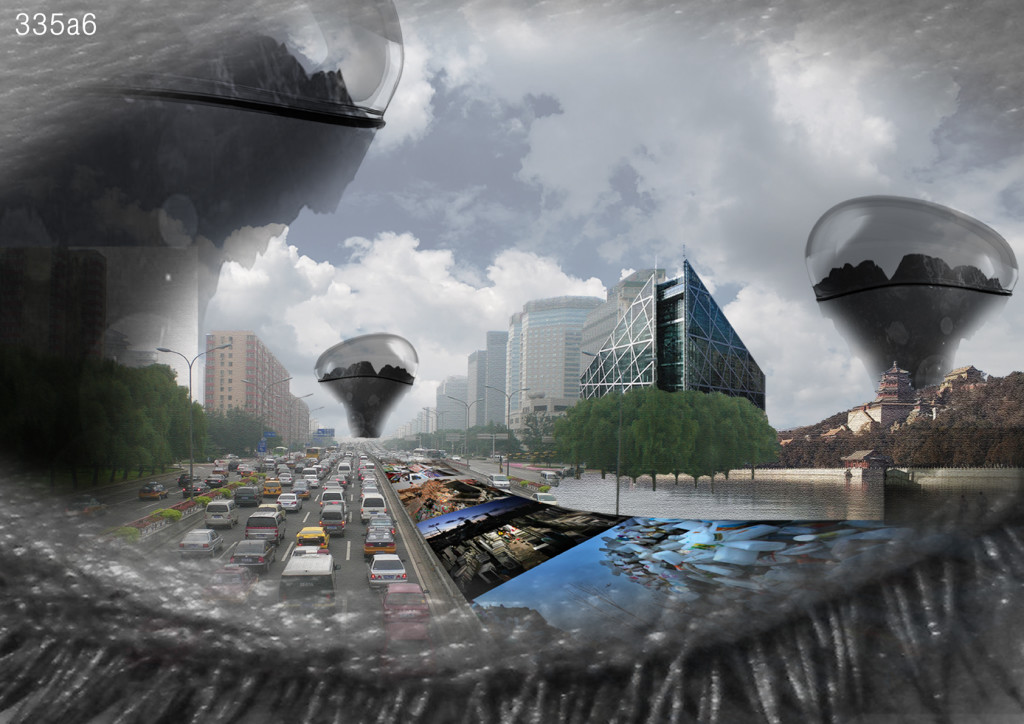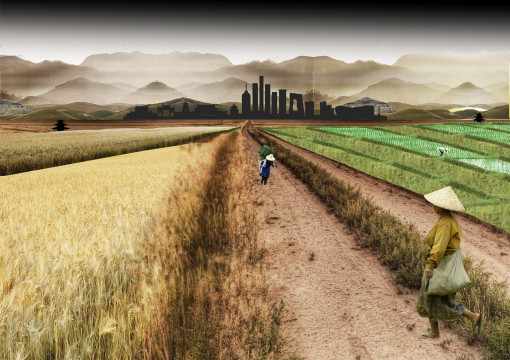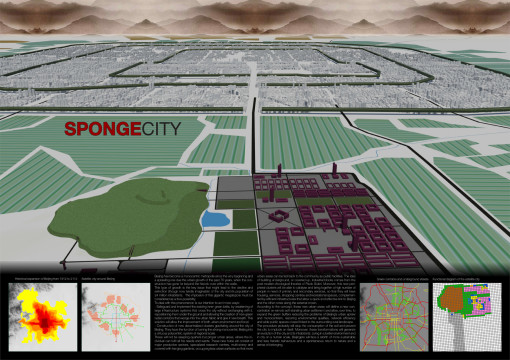Info:
Title: SPONGEcity - Code: b829dContest: Beijing / 2014
By: bestro_26 - Lorenzo Chiodi - Domenica Bona
Views: 3226 Likes: 0
Votes:
Greg Lynn 3 Ai Weiwei 3 Sou Fujimoto 3 Eric de Broches des Combes 43.3
SPONGEcity
Beijing has become a monocentric metropolis since the very beginning and a sprawling one due the urban growth of the past 70 years, when the construction has gone far beyond the historic core within the walls. This type of growth is the key issue that might lead to the decline and extinction (though now hardly imaginable) of the city and its population of 24 million inhabitants. The implosion of this gigantic megalopolis must be considered as a true possibility. To deal with this phenomenon is our intention to act in two ways: – Safeguard and implement the existing inner green belts, by weakening of large infrastructure systems that cross the city without exchanging with it, repositioning them under the ground and allowing the creation of new green radial corridors that wedge into the urban fabric and give it new breath. This solution will allow the improvement of both urban environment and local. – Construction of new decentralized clusters gravitating around the city of Beijing. They have the function of turning the strong monocentric Beijing into a virtuous polycentric system at regional scale. These will not be sleeping quarters but proper urban areas, where the individual can fulfil all his needs and wants. These new hubs will consist of major productive sectors, specialized research centres, multi-storey and covered with hanging gardens, occupying less urban surfaces so that more urban areas can be fed back to the community as public facilities. The idea of building underground, or covered up, industrial blocks comes from the post-modern Arcological theories of Paolo Soleri. Moreover, this new peripheral clusters will be able to catalyse and bring together a high number of people in need of primary and secondary services, so that they will have housing, services, shopping centres and recreational spaces, complemented by efficient infrastructures that allow a quick and effective link to Beijing and the other cores along the external crown. According to the concept, these new urban areas will define a new concentration on remote self-standing urban settlement and allow, over time, to expand the green buffers reducing the problems of Beijing’s urban sprawl and monocentrism, restoring environmental qualities, network efficiency and wide public spaces closed linked to the surrounding rural landscape. The procedure probably will stop the consumption of the soil and prevent the city to implode on itself. Moreover, these transformations will generate an evolution of the city and its inhabitants. Living in a better environment and in city on a human scale, Beijingers will face a rebirth of more sustainable and less frenetic behaviours and a spontaneous return to nature and a sense of belonging.








